At Orthosports ACT, we understand that having surgery can be a very daunting experience for patients.
Preparing mentally and physically for surgery goes a long way towards achieving a successful result.
Having an understanding of the process and the role that you play in it, are important factors in ensuring that you recover quickly, and that possible risks are reduced.
If you and Dr Kulisiewicz decide that surgery will be of most benefit to you, you will need to learn what to expect from the surgery and create a treatment plan to achieve the best postoperative outcome.
Starting Now: Prepare Yourself!
- Make sure that any required medical tests have been completed. This can include, but may not be limited to, blood tests, x-rays, and an ECG 14 days prior to surgery.
- Please remember to wash the affected leg and hip with a Betadine bath 24 hours prior to your surgery
- Ensure that you complete all of your paperwork. It is a good idea to have a relative or friend help you check these.
- You should stop smoking. This will reduce your surgery risks and improve your recovery, Smoking is extremely detrimental to your health and healing.
- Report any infections or skin abrasions/cuts to Dr Kulisiewicz. Surgery cannot be performed until all infections have been cleared up. If you have any doubts about a skin abrasion/cut/possible infection, please mention this to Dr Kulisiewicz anyway.
- Exercise and get as fit as possible prior to your surgery to improve and maintain muscle strength. Pre-surgical fitness increases the likelihood of a quick recovery.
- Eat a well-balanced diet and take the recommended vitamins and supplements.
- Stop or cut-back on alcohol consumption.
- Keep a notebook or mobile phone handy to jot down any questions you may have for Dr. Kulisiewicz, the physical therapist, nurses or staff
- Prepare your home. This may include:
- Stocking your refrigerator and pantry (e.g. pre-cooked or frozen dinners),
- Purchasing or renting any necessary equipment. These may include a walker, cane, raised toilet seat / shower chair. Ensure that you have hired any necessary equipment and set these up prior to admission for your surgery. This may include items such as a shower or a raised toilet chair, crutches or a walker.
- Removing all loose rugs and taping down of electrical cords to avoid falls.
- Placing any items that you use often within easy reach prior to surgery, so as to avoid bending or reaching as often.
- Ensuring that you have a stable chair with a firm seat cushion, two arms and a firm back.
- If you take regular medication, please take these with you to hospital in the original packaging.
- Pack your toiletries and some comfortable loose clothing. Even if you are scheduled for day surgery, occasionally you may need to stay overnight.
- Phones and laptops can be used in the hospital, and both the Calvary Private Hospital and Calvary John James Hospital provide free Wi-Fi access for all patients.
- Any tooth, gum, bladder or bowel problems should be treated prior to surgery to ensure a reduced risk of infection post-operatively.
- Arrange (prior to admission), for someone to help with everyday tasks such as laundry, cooking and driving upon discharge from the hospital.
- Please leave all valuables at home.
Medication Recommendations
The following medications may need to be stopped temporarily around the time of your surgery, as they can impact on the surgery.
The general recommendations are as follows:
| Aspirin | Cease 1 wk preoperatively |
| Anti-inflammatory agents | Cease 1 wk preoperatively |
| Warfarin | Stop 5 days preoperatively after consultation with your General Practitioner and / or Specialist |
| Oral Contraceptives | Stop 2 weeks preoperatively and do not recommence until you are fully mobilising. |
| Hormone Replacement Therapy (HRT) | Cease at least 4 weeks preoperatively & during postoperative immobility |
| Oestrogen Receptor Modulators | Same as for HRT – discuss with oncologist |
| Herbal Products | Stop 2 weeks preoperatively |
* Please discuss this with Dr Kulisiewicz if you are unsure as to what you should do before your surgery *
Day Procedures
- Arrange for someone to drive you home, you will not be able to drive for at least 24 hours.
- Do not drink or eat anything in the car on the trip home. There is a potential for nausea or vomiting due to the combination of food/drink, car motion and anaesthetic.
- If you have had knee surgery, keep that extremity elevated and use ice as directed. This will assist with alleviating swelling and pain.
- Pain medication should be taken as directed. Start taking your pain medication as you begin to get uncomfortable, but before your pain becomes severe. Once your pain has become severe, attempts to control the pain will become very difficult.

